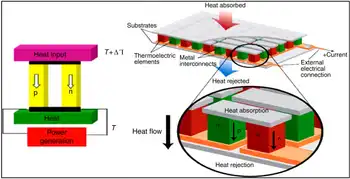Texas utilities battle over electricity pricing
The debate has pitted the two largest utilities in Texas -- Houston's Reliant Resources and Dallas-based TXU -- against each other.
The difference of opinion revolves around two pricing systems -- "zonal" and "nodal." The pricing mechanisms relate to expenses incurred when electricity is moved from individual generating plants to power centers when demand is higher than local supply and transmission capacity is inadequate to handle the load.
Under the current zonal system, local congestion costs are "socialized" and spread throughout the entire market. Each participant pays a pro rata portion of these costs based on its share of the local power load.
A new nodal system being pushed by Reliant would allocate the entire cost to the entity that creates the congestion.
The problem: The expense of implementing nodal pricing could be as much as a half-billion dollars, which ultimately would be passed on to consumers.
Many market players such as TXU question whether the ultimate benefits will be worth the cost.
However, Reliant is certain that nodal pricing is the only way to go -- at least for the Houston utility.
Jim Ajello, CEO of Reliant Energy Solutions, argues that the company is paying for congestion in Dallas and other high traffic corridors while Houston has little congestion. And companies like TXU, which owns generation in those congested areas, are "profiting unfairly" because they are being paid by the Electric Reliability Council of Texas (ERCOT) to alleviate the congestion while paying "only a fraction" of the congestion charges.
"It's a fundamental unfairness," says Ajello.
In the second quarter of 2003, he says, Reliant paid about $30 million in additional congestion costs, a quadrupling of charges.
"The problem is the costs are not properly assigned," Ajello says. "Our load share ratio is 20 percent to 25 percent because the vast majority of our load is in the Houston area, but Houston doesn't have the constraints that Dallas has."
Congestion costs created in Houston were $8 million between May 2002 and May 2003, while in North Texas congestion costs were $82 million. But Houston customers paid $50 million of the total, Ajello says.
TXU, on the other hand, "is quite happy with the current rules -- they're getting paid by everybody," he says.
Related News

A new approach finds materials that can turn waste heat into electricity
LONDON - The need to transition to clean energy is apparent, urgent and inescapable. We must limit Earth’s rising temperature to within 1.5 C to avoid the worst effects of climate change — an especially daunting challenge in the face of the steadily increasing global demand for energy.
Part of the answer is using energy more efficiently. More than 72 per cent of all energy produced worldwide is lost in the form of heat. For example, the engine in a car uses only about 30 per cent of the gasoline it burns to move the car. The remainder is dissipated as…




